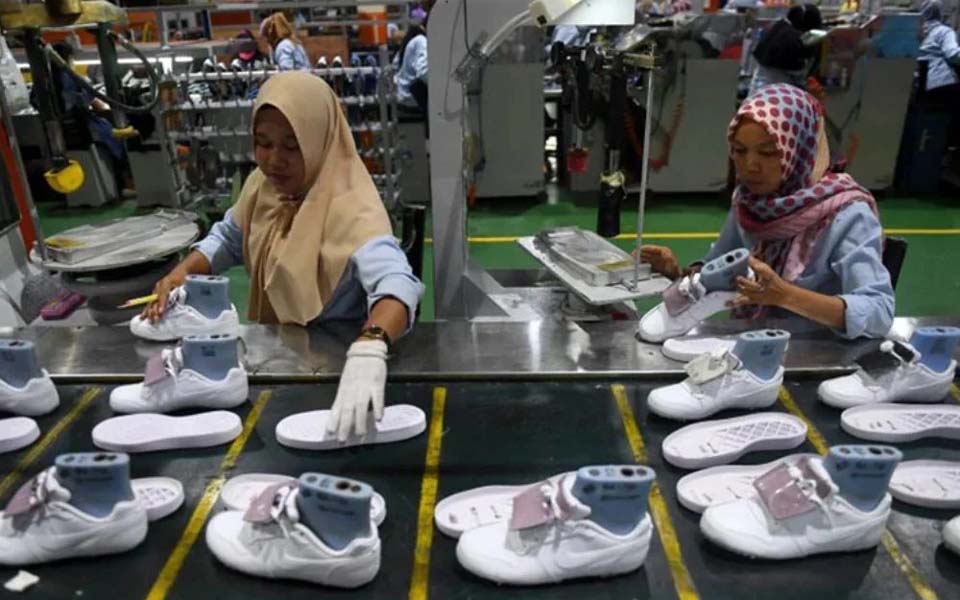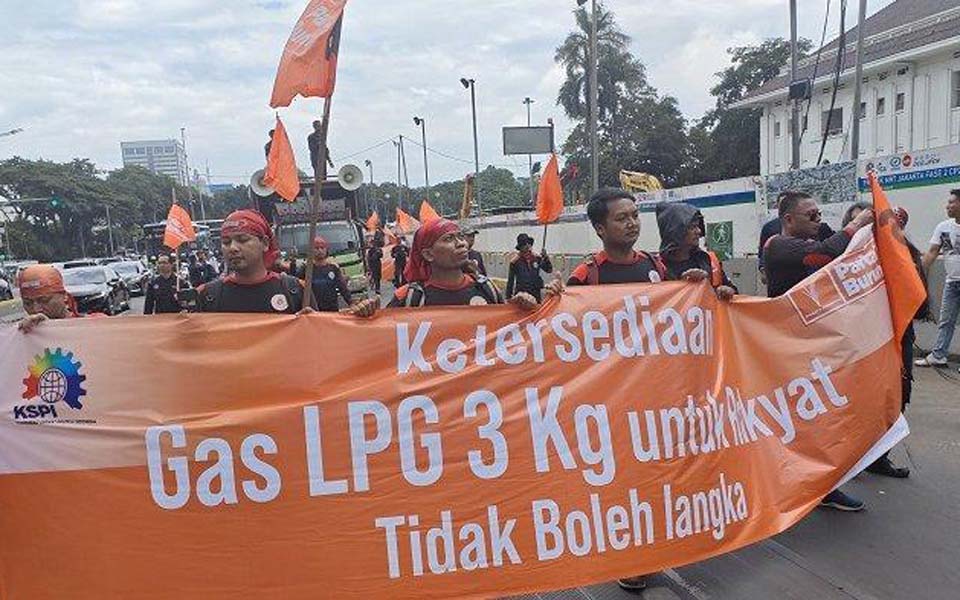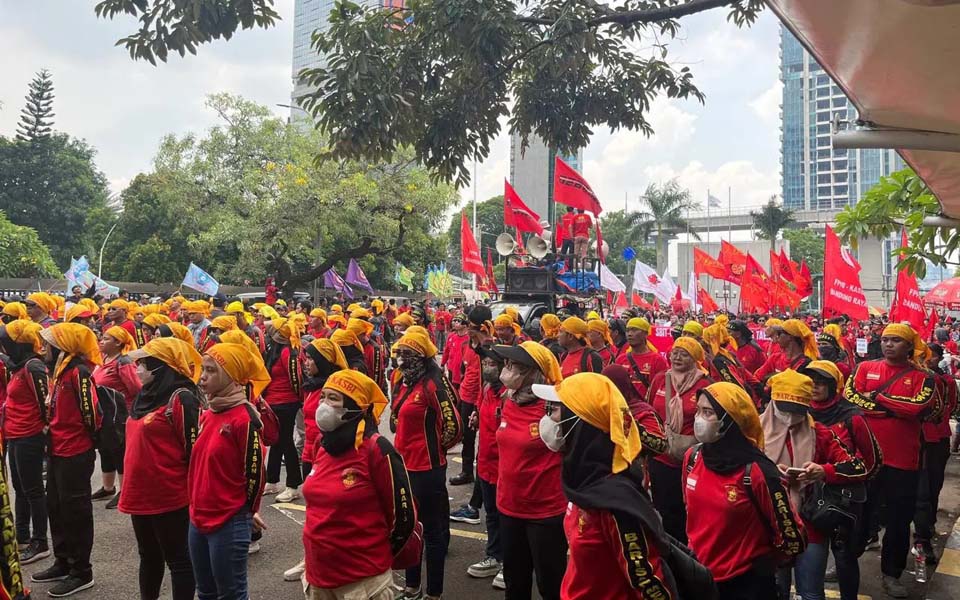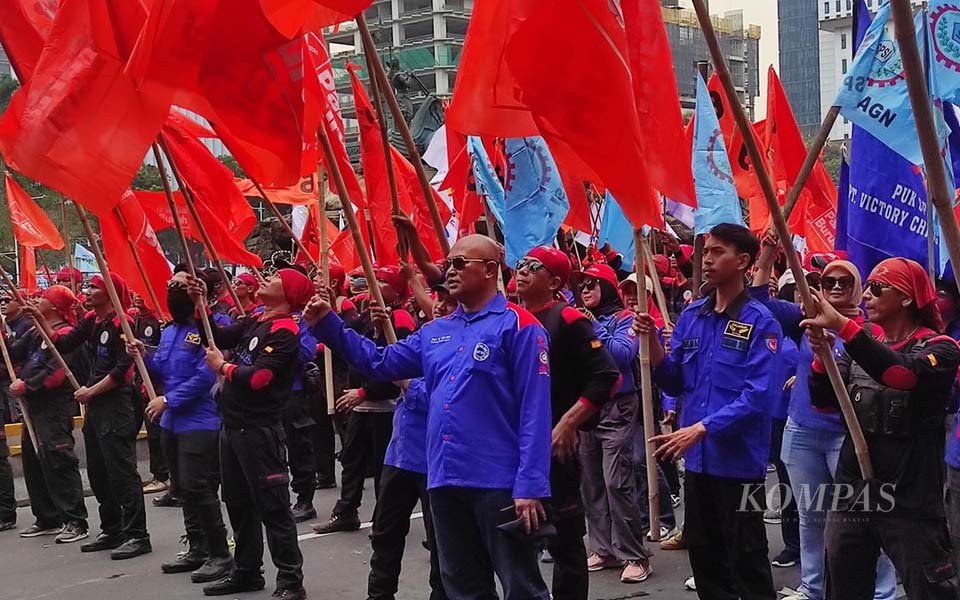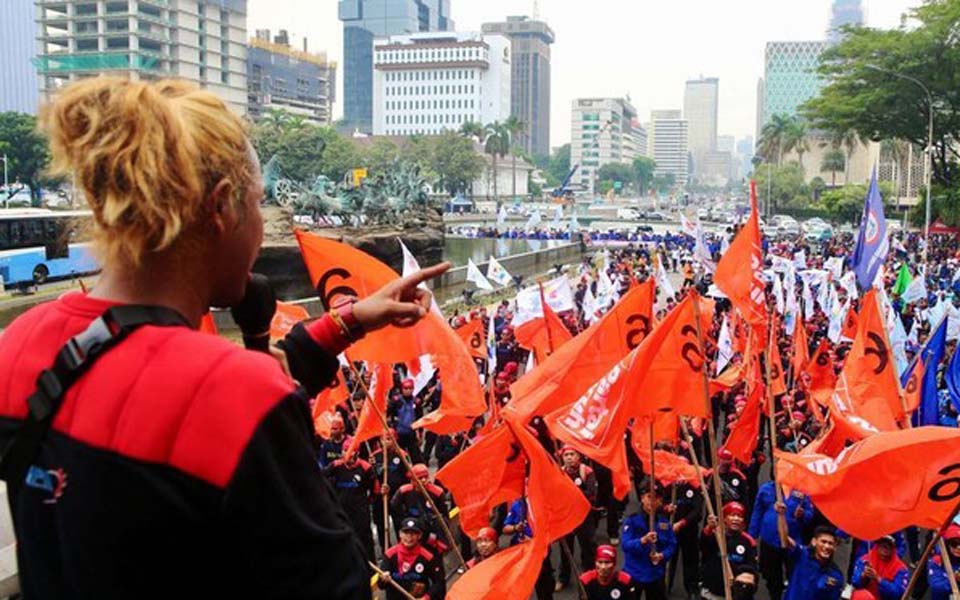According to a labour observer, although wages continue to rise, the real value of workers’ wages has declined so workers are being impoverished structurally.
Airlangga University labour observer Hadi Subhan, who has been monitoring workers’ wages since 1995, says that in the 1990s a workers’ entire monthly wage could purchase 350 kilograms of rice, but in 2013 a wage of 2.2 million rupiah a month can only purchase 200 kilograms of rice.
“This means that over [the last] 15 years the real value of the minimum wage has declined by 50 percent. Take gold for example, one [monthly] wage packet in the 1990s was equivalent to 15 grams, now perhaps only 5 grams”, Subhan told BBC Indonesia journalist Christine Franciska.
Because of this therefore, according to Subhan, using the reasonable living cost index (KHL) as the main component in determining the minimum wage – 2.2 million rupiah a month for 2014 – is in fact unreasonable.
The Jakarta provincial wage board has recently increased the KHL for the capital for 2014 at 2.2 million rupiah a month from the previous 1.9 million rupiah.
In response to this, workers demonstrated in front of the Jakarta city hall on Tuesday October 29 rejecting the KHL and calling for a wage increase of 3.7 million rupiah a month
According to Subhan, there are two problems with the system for setting the wages in Indonesia.
“The first error is with the legal umbrella, Ministry of Labour Regulation Number 13/2013 on the KHL is limited to just 60 components. I think that these components are not a reasonable index of living costs, no matter how it’s surveyed just 60 components is still unreasonable.
“Second the system is also wrong, minimum wages for example are set for unmarried [workers], yet 80 percent of workers have families, the wages of one person are consumed by four people. So I think there is [a process] of structural impoverishment”, he said.
[Pengamat: nilai riil upah buruh terus turun – BBC Indonesia. 29 Oktober 2013. Abridged translation by James Balowski. The second part of the article covered remarks by employer representative Sarman Simanjorang arguing that a minimum wage of 3.7 million is too high.]







